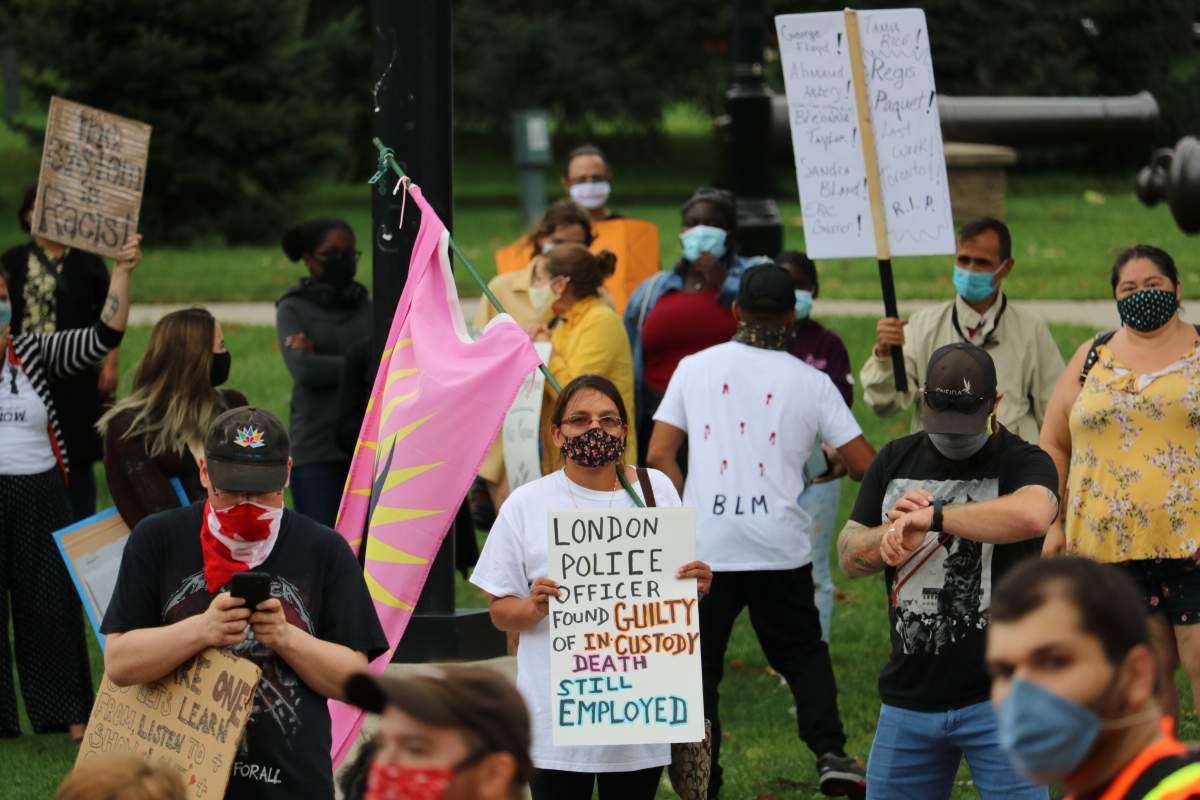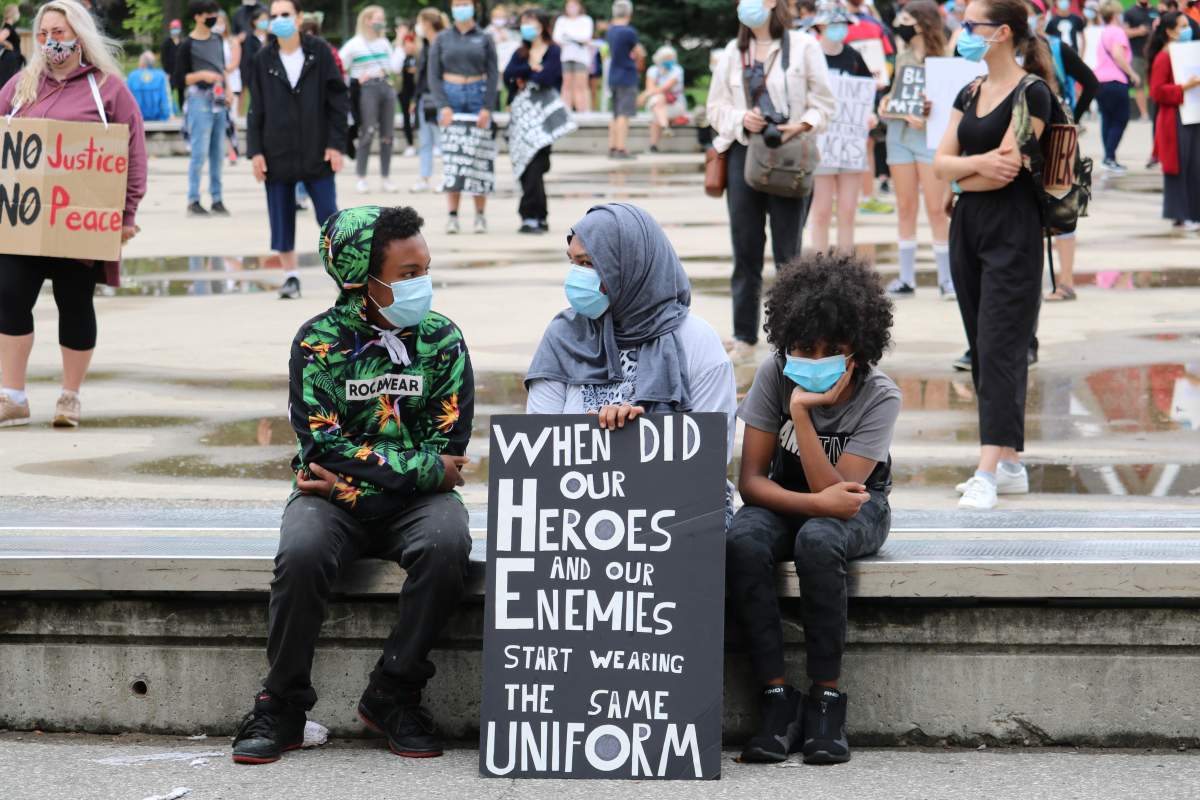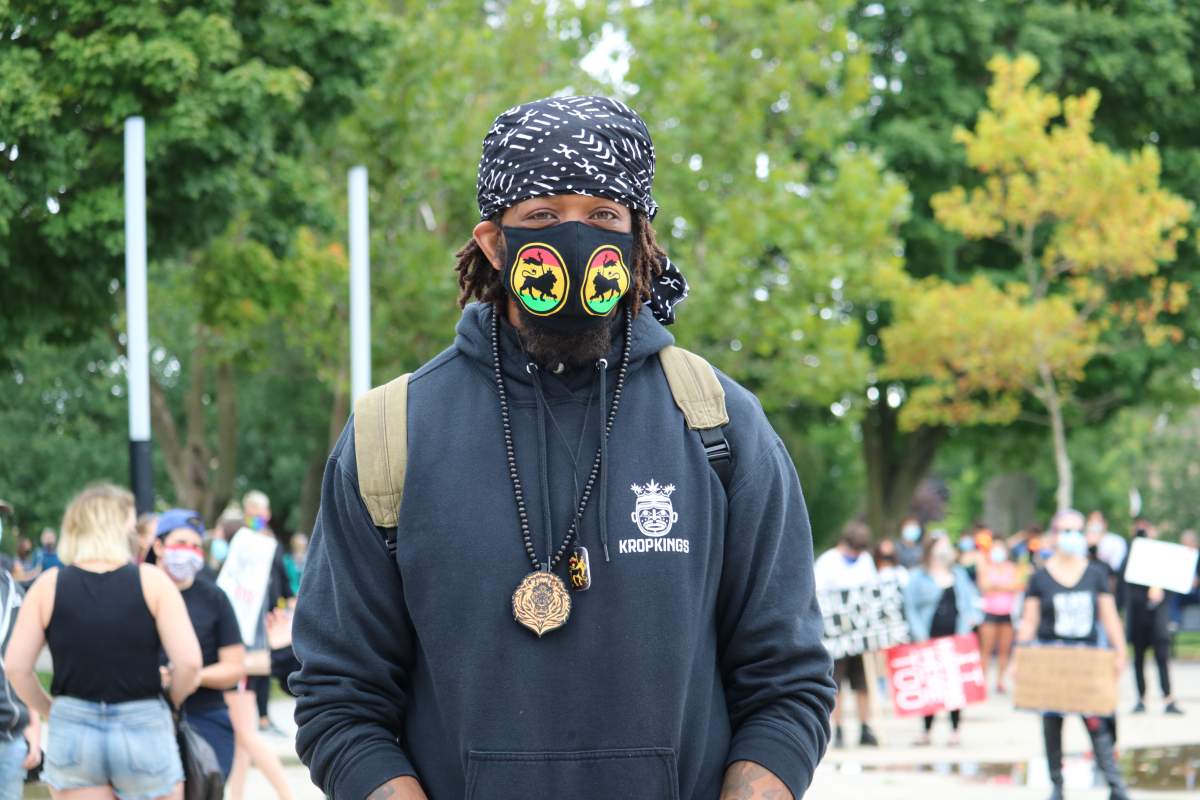Hundreds gathered in Victoria Park on Saturday to support Black Lives Matter London’s protest calling to defund the police.

The protest was one of several to happen across the country as part of a countrywide call to action to defund the police in favour of putting more funding towards community services like mental health and homeless prevention.
“We are looking to establish relocation committees that would take the funding deviated from the police forces and reallocate it back into community-based initiatives,” said Black Lives Matter London member Gal Harper.
Harper said Saturday’s event was not just about London police or Black people in America but all Black, Indigenous and people of colour.
In a video on Twitter, Rick Robson, executive director of the London Police Association, spoke about the protest and what defunding the police would mean for them.
This year, an increase to the police budget was meant to hire five new officers, which Robson said would help alleviate the overtime on their worked officers.
“We simply do not have enough officers to match our current calls for service, and it is killing us.
“Mental health, addiction, homelessness would be better served by agencies with more training and resources,” he wrote on Twitter. “The unfortunate reality is that they are under-resourced, not 24/7, so it falls on the police.”
At the protest, Harper addressed Robson’s comments, saying that “police should not be the one-stop-shop resources for all public health concerns.”

Get breaking National news
“Armed police officers are not the best response team for traffic stops, mental health calls, substance abuse issues, drug overdoses and more,” Harper said.
Ward 13 London Coun. Arielle Kayabaga spoke at Saturday’s protest, asking people to think about the community they want to live in the future.
“Do we want a city where we direct much of our budget to punishing and warehousing people rather than setting up people for success,” she said.
“This is racial and equity budget issue.”
Kayabaga told protestors it was up to them to hold elected officials accountable for change and continue educating themselves on the issues and not back down.
“We will not stop until we have taken our lives and our communities back,” she said.
“If we can recognize systemic threats, then there needs to be systemic change.”
On June 9, the Strategic Priority and Policy Committee unanimously passed several motions to address systemic racism in London against Black, Indigenous and people of colour.
Protestor Cottreezy Ras, 38, moved to Canada in 2017 from New Baltimore, N.Y., and says although racism might not be on the same level as in the United States, it still exists.
“As long as we keep persistent and show no fear and don’t back down, then we will see change.”
Ras said in the United States he dealt with KKK and the constant fear of being shot by police. Here he said he does not fear getting shot, but he is still scared about their perception of him as a Black man.
This is the third Black Lives Matter protest to happen in London, with the first seeing approximately 10,000 flood Victoria Park to call for an end to police brutality and racism following the death of George Floyd.
Black Lives Matter London was founded several months back by a group of high school seniors.
“It’s our future we are fighting for; we are doing this so we can have a future for our children and grandchildren,” Ghaida Hamdun, Black Lives Matter London co-founder, said.














Comments